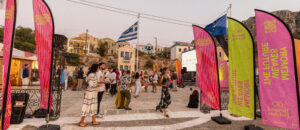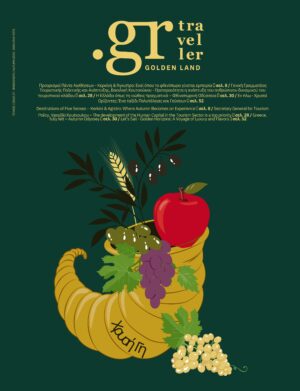Vassilis Karakatsanis @ Gallery Genesis
May 8 – 31, 2025 | 121 Ippokratous Street, Athens
Part of the This is Athens – City Festival
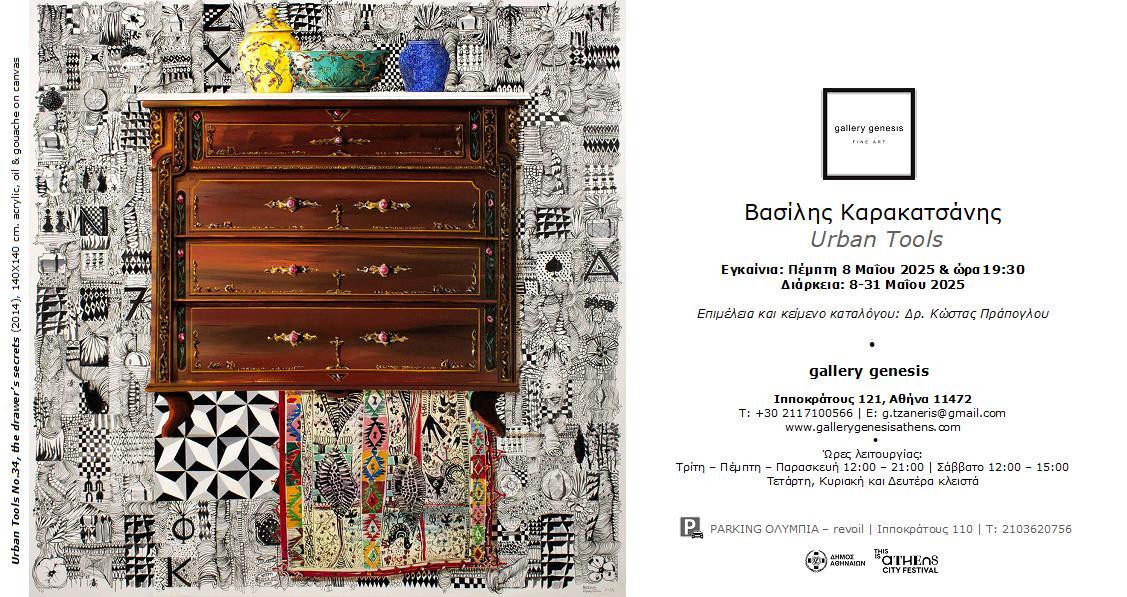
The work of Vassilis Karakatsanis invites us on a journey through the spectrum of contemporary existence—a complex, ever-evolving blend of memories, collective narratives, and social dynamics. The exhibition Urban Tools offers a compelling negotiation between past and present, the personal and the monumental. Seven large-scale paintings, alongside a multitude of smaller works—executed in acrylic, oil, and gouache on canvas—prompt a deep exploration of life in all its textures and shades.
At the core of Karakatsanis’s practice lies a transcendental interior process, shaped through the lens of memory and materiality. The exhibition title hints at the hidden mechanisms that define the essence of place: the penetrating, often unseen tools that help us navigate, define, and interpret the environments we inhabit—tools that also construct and reflect our very being. The urban landscape is not merely the artist’s subject; it is his medium. Each brushstroke reveals the complex relationship between its unique material presence and the stories it holds. Symbols of personal and collective identity, ideology, and emotion are intricately woven into the fabric of everyday life.
The exhibited works unfold as reflections of a metropolitan spirit, recording the material remnants of an ever-shifting network: its objects, people, and infrastructures. These works act as landmarks of a pervasive condition in our shared consciousness, where the object transforms into a vessel of awareness, desire, and loss.
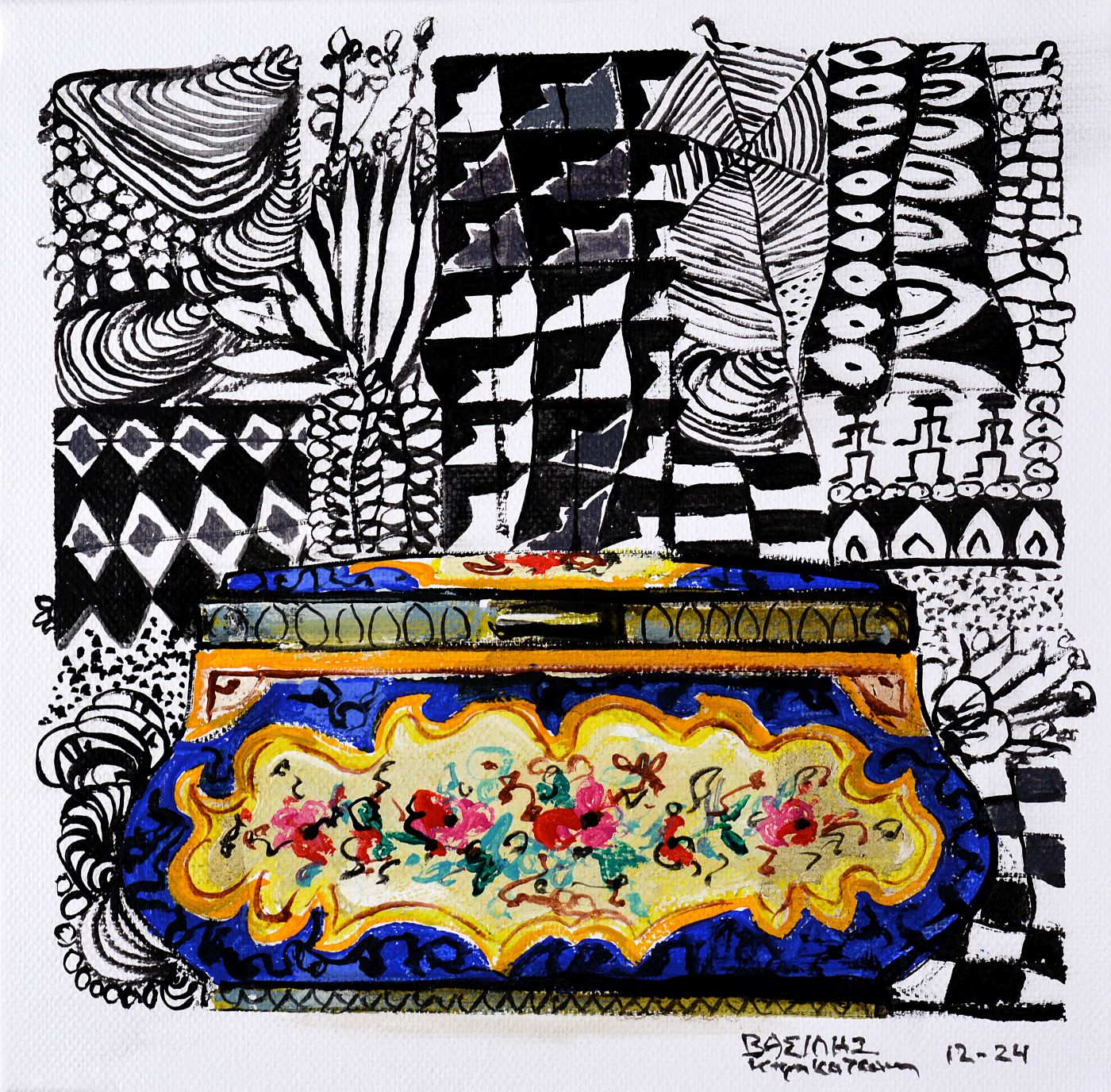
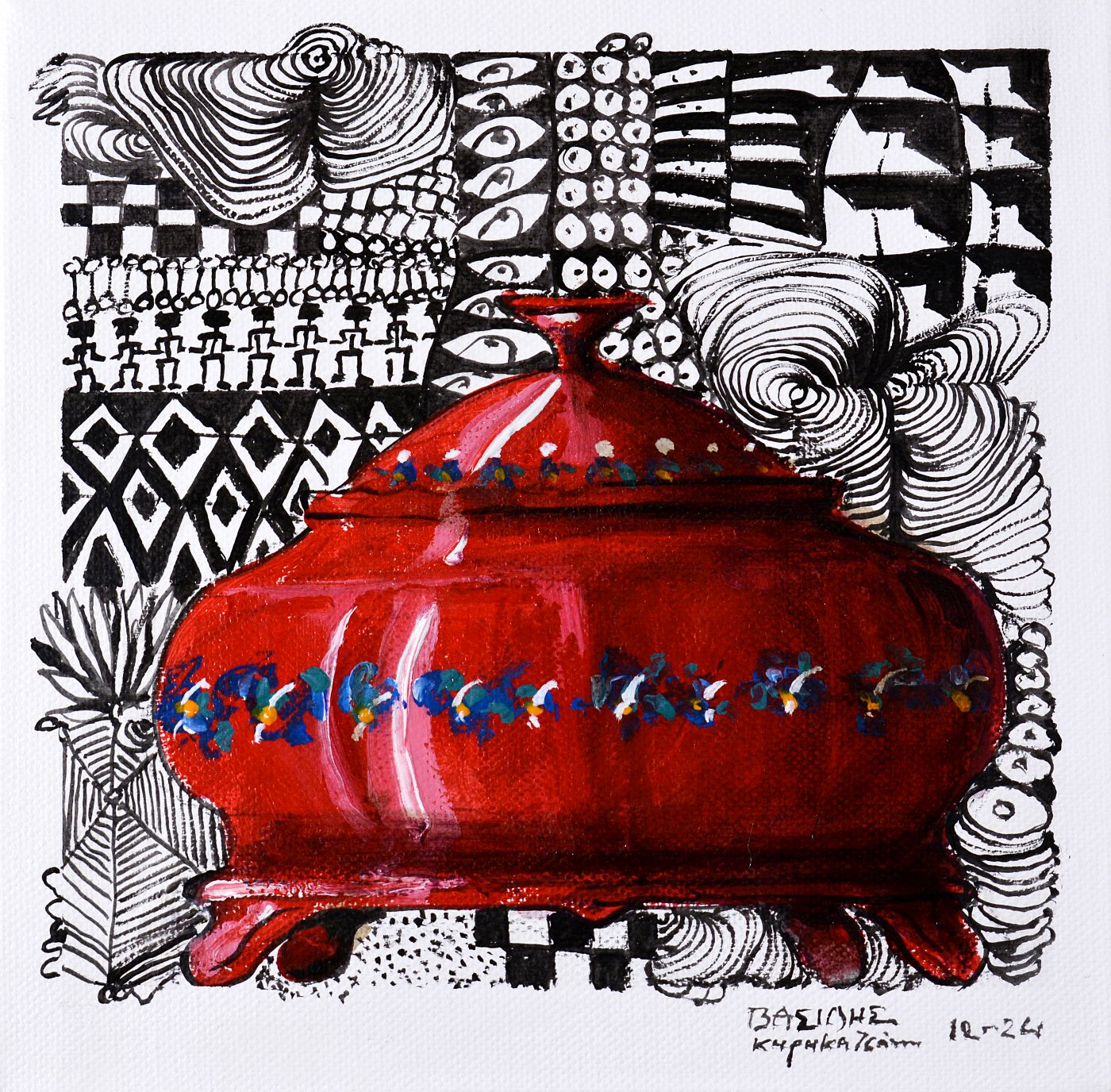

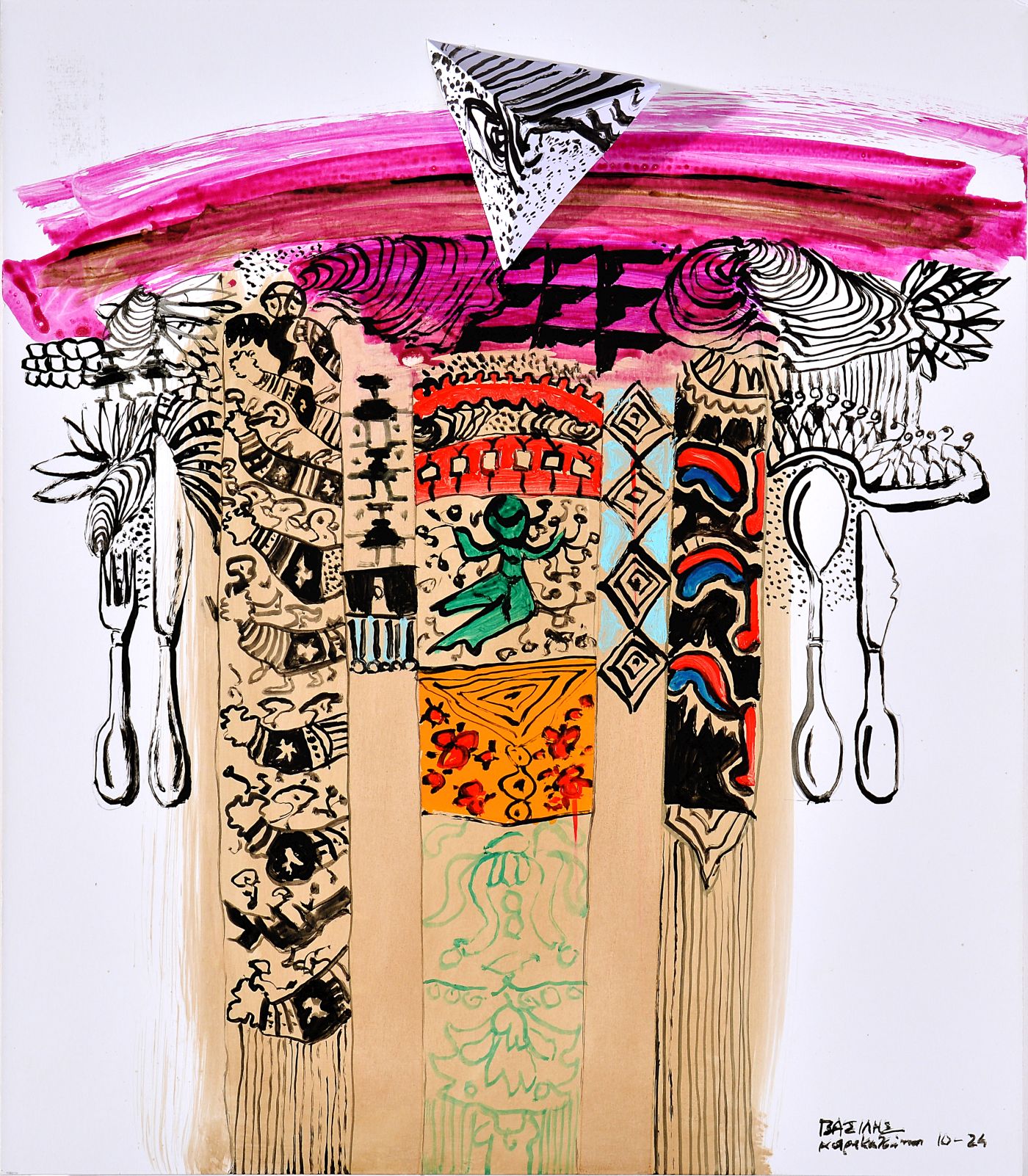
Karakatsanis’s exploration of urban matter is profoundly personal, rooted in his own experiences and the shared history of Athens. Echoes from the 1960s and 1970s resound throughout his work as he reinterprets the visual culture of those decades through his lived memories. His references to geometric patterns found in traditional Greek carpets, tiles, or embroidered decorations from provincial Greece—such as those of Skyros—bridge public and social space with a nostalgic aesthetic, laden with familial and domestic resonance. As Karakatsanis states, “what the householder knows, the whole world does not,” underscoring his desire to unveil the hidden narratives behind ordinary objects and shed light on the overlooked threads of collective and private histories.
Beyond materiality, Urban Tools confronts the dualities that shape our presence: empathy and arrogance, virtue and vice. These contradictions arise through the artist’s careful selection of elements imbued not only with aesthetic but also philosophical gravity. His works often activate a dialogue and tension between generosity, memory, familial bonds, and the vanity of contemporary spaces governed by trends, consumerism, and the promise of instant gratification. This allegorical push and pull grants each piece layered meanings, inviting introspection and contemplation.

In many works, Karakatsanis incorporates cryptographic symbols—initials, numbers, and other annotations—that echo the enigmatic language of personal journals. These discreet markings lend a sense of intimacy, suggesting a private world shielded from public view. They reinforce the experience of his constructed landscapes as multifaceted, stratified journeys that resist simplistic interpretation. They recall how fragmented stories converge within the broader social fabric.
Architectural forms, especially houses, evoke earlier works where such structures symbolize home, family, and the passage of time. The c/Aragón 249 series (1983), created during his stay in Barcelona, illustrates the experiential and sequential quality of his thematic cycles. These cycles are largely interdependent, evolving both artistically and conceptually. Over a 42-year career, Karakatsanis captures multiple interpretations of similar questions across different moments in time—a negotiation between the joy of life and the presence of fear, expressed through a signature graphic style and emotional resonance.
For Karakatsanis, the city is both a point of departure and return. As he notes, it is “Athens as I live it, and as I imagine it.” It becomes a living archive of past lives, a space where individual and collective memories fuse. Within this space, his reflections on family and diasporic narratives—especially the story of his parents in Egypt—interweave with rituals of return, loss, and longing.
The repetition of motifs serves as the dominant formal device, expressing the cyclical nature of life. The choreography of Karakatsanis’s patterns reflects a process of self-reflection. Their constant rearrangement mirrors the ongoing reinterpretation of our surroundings—both physical and psychological—within a never-ending search for meaning.
Urban Tools is not merely a visual exhibition; it is a philosophical journey into the role of landscape in shaping identity, memory, and moral orientation. Through the vibrant textures of his canvases, Karakatsanis invites us to reframe the ordinary tools of daily life as potent metaphors—full of history and meaning. He compels us to question how we move through the city, and to uncover what lies beneath its surface. Reimagining it as a dynamic palimpsest, the exhibition explores the interplay between spatial perception and the formation of self, urging a deeper awareness of the metaphysical ties between place and person. His work suggests a poetic ontology—where the unseen charts a more meaningful path than the visible and tangible.
Vassilis Karakatsanis
Born in Athens in 1957, where he lives and works.
He studied painting, stage design, and book art at the Athens School of Fine Arts; art theory at the School of Fine Arts in Barcelona; and architectural conservation at the Centro Europeo in Venice. His studies were supported by grants from the Greek State Scholarships Foundation (IKY), the Spanish government, and the Council of Europe.Since 1982, Karakatsanis has held numerous solo exhibitions across Greece, Cyprus, Spain, Italy, Indonesia, Ecuador, Turkey, Denmark, the UAE, and Germany. He has participated in many group shows, art fairs, and international exhibitions.
His work is included in museum, private, and public collections in Greece and abroad.
Website: www.v-karakatsanis.gr










